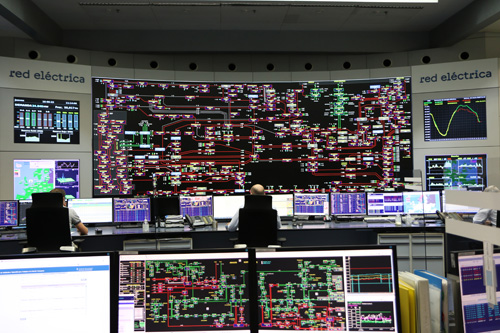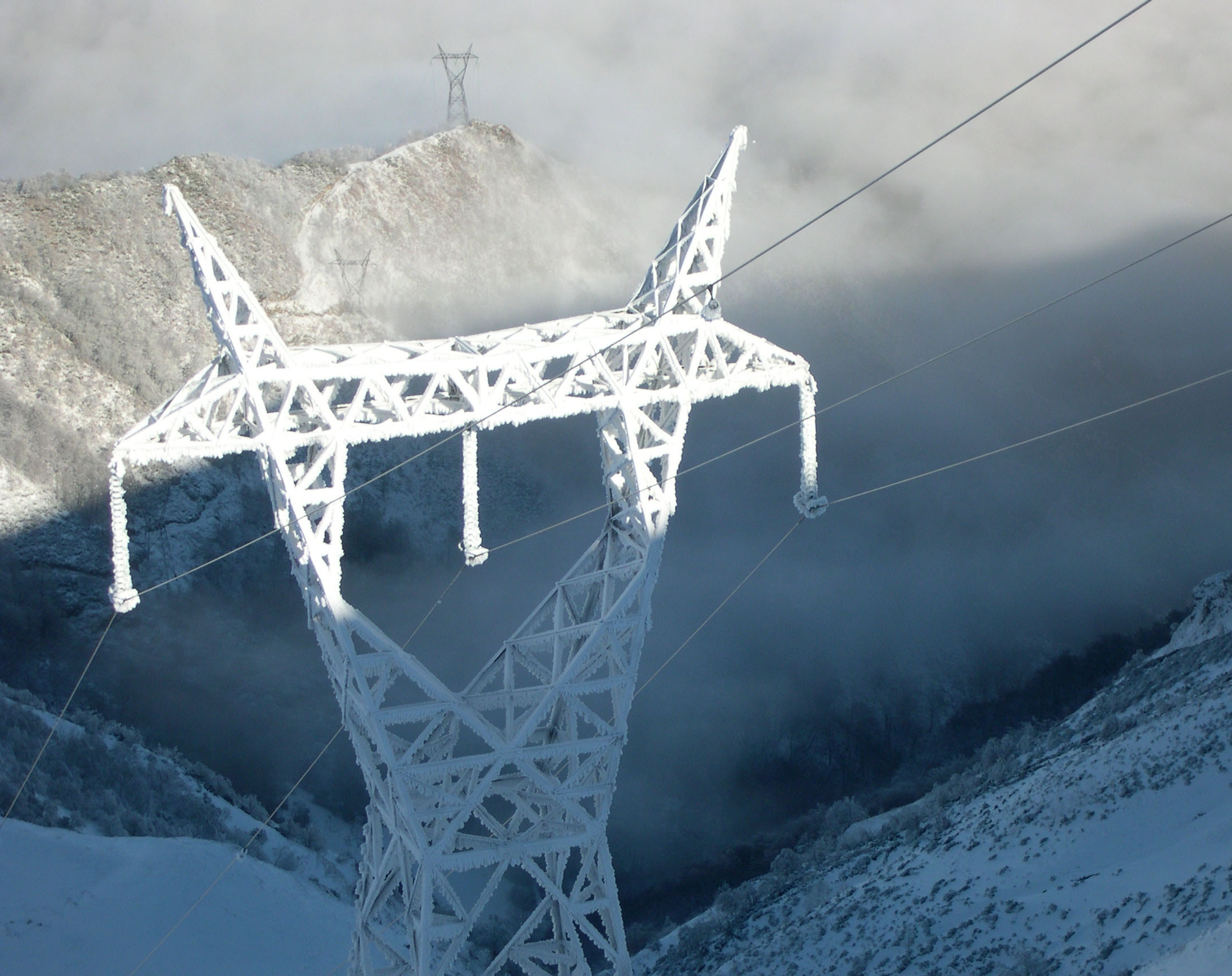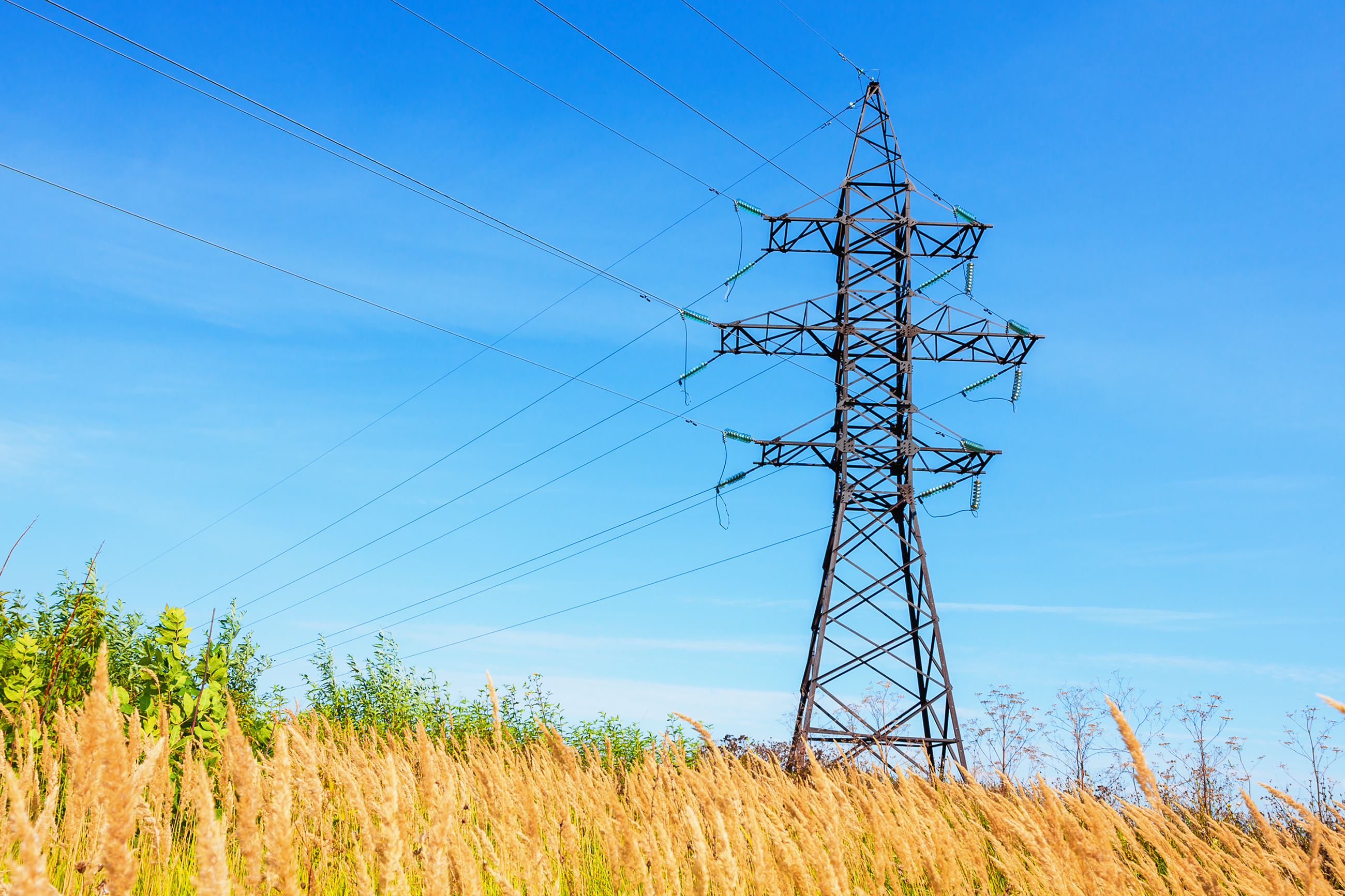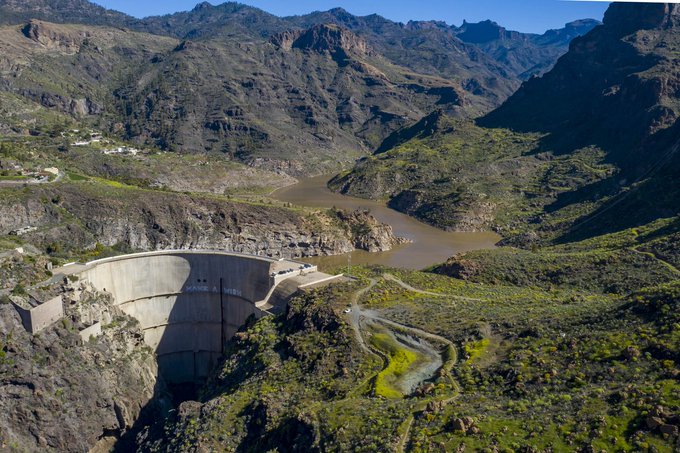For 40 years, we've been driving our country's economic and social progress. Four decades shaping Spain.
Demand for electrical energy continues its recovery with a growth of 0.8% in 2016
- 41.1% of electricity generation on the Spanish peninsula was obtained through renewable technologies.
- 674 km of new electricity circuit and an additional 600 MVA of transformer capacity have been brought into service this year
The demand for electrical energy on the Spanish peninsula in 2016, with data estimated at year end, stands at 250,266 GWh, with a growth of 0.8% compared to the previous year. After factoring in the seasonal and working patterns, demand is estimated to be at the same level as in 2015. 41.1% of electricity production on the Spanish peninsula came from renewable sources, representing 4.2 percent more than in 2015.
Red Eléctrica publishes this information in the ‘Spanish Electricity System - Preliminary Report 2016’ that provides in advance the annual result of the behaviour of the electricity system during this year; a year in which demand on the Spanish peninsula continued the positive growth trend started in 2015 after having suffered four consecutive years of decline.
The maximum instantaneous power occurred for the first time ever during the summer period, specifically on 6 September at 1:32 pm when it reached 40,489 MW, a value just 0.6% below the previous year's maximum registered in February and 10.9% below the all-time high of 45,450 MW reached on 17 December 2007
Annual evolution of the peninsular electricity demand
| GWh |
Δ annual (%) |
Δ Annual corrected(*) (%) |
|
| 2012 | 252,014 | -1.4 | -1.8 |
| 2013 | 246,368 | -2.2 | -2.2 |
| 2014 | 243,544 | -1.1 | -0.1 |
| 2015 | 248,398 | 2.0 | 1.7 |
| 2016 | 250,266 | 0.8 | 0.0 |
| (*) After factoring in the seasonal and working patterns | |||
Renewable energy generation and demand coverage
In 2016, 41.1% of the energy generated within the peninsular electricity system was obtained from renewable sources, compared to 36.9% in the previous year, a growth favoured mainly by the 25.1% increase in hydroelectric production with respect to 2015.
Nuclear was the main source of electricity generation in 2016, and covered 22% of this year's demand, followed by wind (19.2%), hydro (14.1%), coal (13.7%), combined cycle (10.4%), cogeneration (10.1%), solar photovoltaic (3%), solar thermal (2%), other renewables (1.4%) waste (1.2%). In addition, imports of electrical energy covered 2.9% of peninsular demand in 2016.
Peninsular demand coverage

Installed power capacity: less coal and more solar photovoltaic
The total number of electricity generating facilities in Spain registered in 2016 a slight decrease of 0.9% compared to the previous year, due to the closure of several coal-fired power stations, which represent a decrease of 8.5% in installed capacity compared to the previous year. On the other hand, solar photovoltaic generation grew by 0.3% compared to 2015. At the end of 2016, the installed power capacity of the national electricity system stood at 105,308 MW.
Non-peninsular systems
Annual demand for electricity in the set of non-peninsular systems closed 2016 at 15,050 GWh, representing a growth of 1.1% compared to the previous year. The demand by system was as follows: Balearic Islands, Canary Islands and Ceuta grew 1.0%, 1.2% and 2.8% respectively, while in Melilla registered a fall of 1.7%.
Importer balance in international electricity exchanges for the first time since 2003
In terms of international electricity exchanges, imports surpassed exports by 7,313 GWh, which is the first Importer balance recorded since 2003.
| France | Portugal | Andorra | Morrocco | Total | |
| 2012 | 1,883 | -7,897 | -286 | -4,900 | -11,200 |
| 2013 | 1,708 | -2,777 | -287 | -5,376 | -6,732 |
| 2014 | 3,567 | -903 | -235 | -5,836 | -3,406 |
| 2015 | 7,324 | -2,266 | -264 | -4,927 | -133 |
| 2016 | 6.110 | 6,688 | -286 | -5,199 | 7,313 |
|
Positive balance: importer; negative balance: exporter |
|||||
674 km of new electricity circuit
In 2016, the development of the transmission grid experienced a new impetus with the coming into service of 674 km of new circuit and 600 MVA of transformer capacity that increase the reliability, the degree of grid meshing, the connections between islands and enable a greater amount of renewable energy to be incorporated into the electricity system. In total, the Spanish transmission grid has 43,801 km of electricity circuit.
The Press Office of Red Eléctrica publishes all written and audio-visual information via the Twitter account @RedElectricaREE.
Also on Facebook through the account RedElectricaREE.












